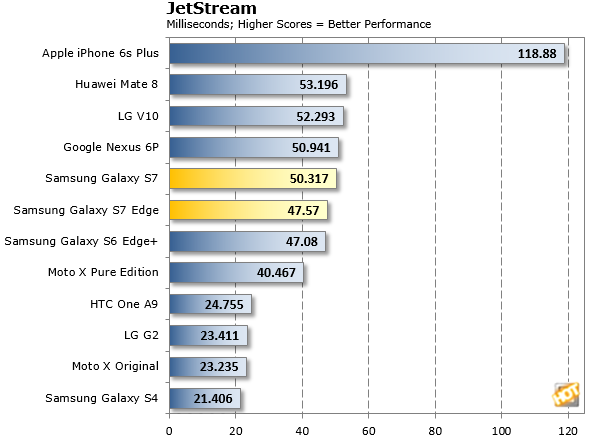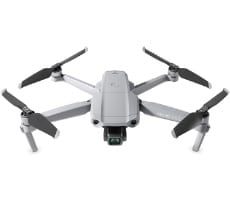First we'll take a look at how Samsung's latest Galaxy S7 devices compare to other smartphones and processing engines by examining a few benchmarks that are currently available on the Web or in the Google Play Store.
First, let’s take a look at the JetStream JavaScript benchmark, which now replaces SunSpider in our suite of browsing tests. According to the JetStream website: JetStream is a JavaScript benchmark suite focused on the most advanced web applications. Bigger scores are better.
 | | Web Browser And Javascript Benchmarks | | Web Workload Testing |
|
Frankly, there's not much that's all that notable here. Most current-gen devices all perform pretty similarly and the differences in scores, with the exception of the iPhone 6S, are well within this tests margin of variation. Whatever mojo Apple cooks up with their Safari mobile browser and the A9 however, is clearly head and tails above the rest, according to JetStream anyway.
Rightware's BrowserMark test also ranks performance of modern mobile web browsers, along with device processing engines, in terms of how well they handle web page loading, screen resizing, and various web graphics rendering workloads.

Here again we see a very tight grouping of the top flagship smartphones only this time the iPhone 6S is in the middle of the pack. Interestingly, the octal-core devices, like the Galaxy S6 series, the Galaxy Note 5 and Huawei's Mate 8, outpace the quad-core Snapdragon 820 in the new Galaxy S7 and S7 Edge but only by a hair.
Let's move on to some heavier lifting...









